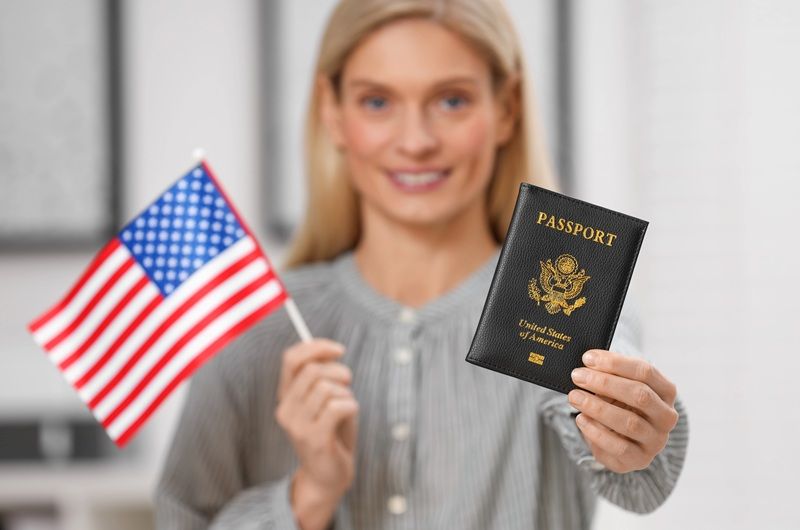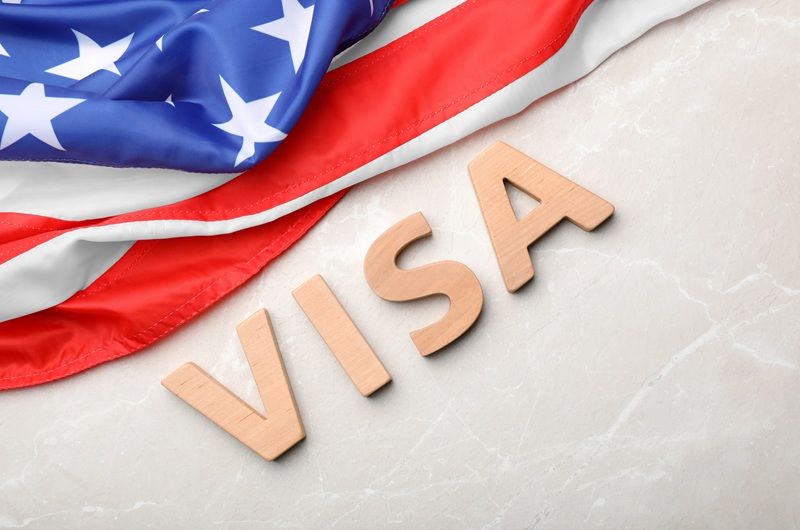Can You Apply For VAWA On A K-1 Visa?
The path to love and companionship frequently takes unexpected twists. The K-1 Visa, often known as the Fiancé Visa, allows individuals to bring their foreign fiancés to the United States for marriage. However, not every story has a fairytale ending. It is a horrible possibility that the person you previously fantasized about spending your life with would engage in abusive conduct. In such upsetting situations, it is crucial to understand how the Violence Against Women Act (VAWA) may give assistance and protection and explore your alternatives.
Learn whether it is possible to petition for VAWA protection while on a K-1 Visa. Furthermore, know more about the alternative approaches to dealing with an abusive fiancé and ways an immigration lawyer can benefit you.

What Is A K-1 Visa?
The K-1 or Fiancé Visa is a non-immigrant Visa that the U.S. government issues to foreign nationals planning to wed American citizens. The fiancé living overseas can enter the United States to get married within 90 days of arrival.
Its principal aim is to allow couples to reunite and continue their marriage arrangements in the United States. This Visa category recognizes the affairs of engaged couples still completing the legal prerequisites for marriage. The procedure begins with the petitioner, a U.S. citizen, filing with U.S. Citizenship and Immigration Services (USCIS). They do it on behalf of their fiancé abroad.
Upon the petition’s approval, the foreign fiancé must attend a consular interview at the nearest U.S. embassy or consulate. Its purpose is to evaluate the connection’s authenticity and to verify whether both parties fulfill the qualifying standards. Once the Visa is approved, the foreign fiancé can travel to the United States to marry the U.S. citizen petitioner.
Learning the definition, purpose, and procedure of the K-1 Visa is essential as knowing its limits and restrictions. Individuals seeking this type of Visa can make informed judgments and better handle the process by understanding them.
What Are The Limitations Of A K-1 Visa?
While this Visa allows couples to begin their marriage adventure in the United States, it does have some limitations and restrictions, which are as follows:
- Time limit. It only gives couples 90 days to get married. If they do not marry within this time range, the foreign fiancé must leave the country.
- Intention to marry. The Visa requires the partners to prove their desire to marry and start a family together. They must establish truthfulness and sincerity in their purpose to wed.
- Work permission. When visiting the United States on a K-1 Visa, the foreign fiancé may seek work permission by submitting Form I-765. Once accepted, they can lawfully work in the United States for the next 90 days while awaiting marriage.
- Immigration status. Remember that it does not grant instant lawful permanent resident(LPR) status or a green card. The foreign spouse must apply for an adjustment of status.
- Dependents. Minor children of a foreign fiancé may be eligible for K-2 Visas to follow their parents to the United States. They must, however, be named on the K-1 Visa petition and go through the same application procedure.
Meeting the person of your dreams can be exciting. But what if your U.S. citizen fiancé starts acting abusively in the middle of your relationship? What can you do to protect yourself and deal with the dreaded situation? How can you escape an abusive relationship before it becomes legally binding?
What Is VAWA?
The Violence Against Women Act (VAWA) came into effect in 1994 through the efforts of the United States Congress. Its purpose was to prevent and address domestic abuse, dating violence, sexual assault, and stalking. Victims of these crimes confront vulnerabilities, and this act provides assistance, resources, and legal remedies to protect and empower them.
Protections & Benefits
VAWA entitles domestic abuse victims, regardless of immigration status, to various protections and benefits, which include:
- Confidentiality. It protects victims’ personal information during the application process, providing them with protection and privacy.
- Self-Petitioning. Under this act, qualified victims can self-petition for immigration benefits without help from their abusive spouse, parent, or child. It empowers victims to acquire control of their immigration status and pursue it independently.
- Protection from deportation. It enables victims facing deportation proceedings to obtain a stay of deportation, allowing them to stay in the United States and seek legal remedies.
- Work permission. Victims who filed a self-petition may seek work permission. It allows them to support themselves and their children while processing their application.
- Obtain public benefits. It assures victims have access to public services, such as Temporary Assistance for Needy Families (TANF) and Medicaid. It helps them reconstruct their lives and protect their well-being.
VAWA On Addressing Domestic Violence
 Since its foundation, VAWA has worked hard to address the issue of domestic abuse. They do this by giving victims the resources to escape abusive situations. It recognizes the inherent power imbalances and the need for victims to get help and take measures toward a safer and more secure future.
Since its foundation, VAWA has worked hard to address the issue of domestic abuse. They do this by giving victims the resources to escape abusive situations. It recognizes the inherent power imbalances and the need for victims to get help and take measures toward a safer and more secure future.
It aims to increase awareness about domestic abuse, boost preventative initiatives, and improve law enforcement and care providers’ responses. The Violence Against Women Act assures immigration status does not constitute a barrier to seeking protection by acknowledging the problems experienced by immigrant victims.
Additionally, it urges victims to speak, denounce abuses, and seek help through its provisions, building a culture that values safety and well-being. It highlights the need for community support, legal remedies, and comprehensive assistance in breaking violence and creating a safe environment.
Through VAWA, individuals suffering from domestic abuse can access the resources and programs available. It is critical to be informed of these rights and to get legal counsel to effectively handle the process and secure a route to safety and relief.
After understanding the self-petition, it would also be good to see the possibility of applying for VAWA with a K-1 Visa. Individuals can seek the necessary protections by considering other options related to this procedure.
Can You Apply For VAWA With A K-1 Visa?
VAWA provides critical protection and immigration benefits to victims of domestic violence, assault, or battery. It has stringent qualifying conditions but does not include those with a K-1 Visa. The K-1 Visa allows the admission of the fiancés of U.S. citizens into the United States for marriage. However, this Visa category does not allow you to apply for VAWA self-petition.
VAWA’s self-petition procedure targets certain people. It includes spouses of U.S. citizens or LPRs, children of abusive U.S. citizens or LPRs, and parents of abusive U.S. citizens. They aim to address the unique characteristics of abusive relationships in the context of immigration.
While it is unfortunate that the K-1 Visa does not provide instant eligibility for VAWA benefits, remember that you still have other options for dealing with abuse. Victims of domestic violence who are on a K-1 Visa may consider seeking help elsewhere. They may obtain a restraining order, contact law enforcement, or connect with groups helping in assisting victims of domestic violence. Consulting an immigration lawyer can also give helpful advice on various legal choices and strategies for protecting one’s well-being and safety.
What Options Do You Have When Abused By A U.S. Citizen Fiancé?
When experiencing abuse from a U.S. citizen fiancé, it is vital to consider available protection options and appropriate immigration remedies.
U Visa
The U Visa is for domestic violence and extreme cruelty victims. It benefits those who experienced physical or mental abuse and are ready to cooperate with law enforcement. It grants temporary legal status in the United States and the opportunity to pursue a path to permanent residency.
You must fulfill specific requirements to be eligible for a U Visa, and they are as follows:
- You must know about a qualifying crime committed in the United States.
- You are a victim of the crime.
- You have experienced severe physical or mental abuse due to the crime.
If you want to know if you are qualified, you may seek legal advice from an immigration lawyer. They can help you determine your eligibility and assist you with the application procedure.
VAWA Cancellation Of Removal
Based on VAWA, you may qualify for the cancellation of removal proceedings. It is when you suffer violence or abuse from an American fiancé or an LPR. You may even obtain a green card or lawful permanent residency.
To be eligible for VAWA cancellation of removal, you must prove your U.S. citizen husband or fiancé has abused you. You must also have lived with them, have good moral character, and meet additional criteria. When gathering evidence and navigating the challenging cancellation of the removal procedure, you may need the help of an experienced immigration attorney.
Let An Immigration Lawyer Help
When filing for VAWA, a skilled immigration lawyer can provide invaluable assistance. They ensure all required papers and supporting paperwork are correctly completed and filed on time. They can assist in gathering evidence to support a case since they have a thorough grasp of the regulations. In addition, their presence can improve the petition and boost the odds of success by compiling and presenting the facts.
An immigration lawyer can represent you during the application procedure. If there are requests for evidence or interviews from the U.S. Citizenship and Immigration Services (USCIS), they can assist you in preparing the proper responses. Most importantly, a lawyer can give you peace of mind by providing professional guidance throughout the VAWA application process.
K-1 Visa, also known as the Fiancé Visa, allows foreign fiancés to come to the United States for marriage. However, a K-1 Visa does not guarantee eligibility for VAWA protections. However, it suggests alternative options for dealing with abuse, such as applying for a U Visa or seeking VAWA cancellation of removal. Additionally, it highlights the role of an immigration lawyer in providing guidance and support for seeking protection and relief from abuse.
Contact A U.S. Immigration Attorney Today!
Categories
How To Find Us
What Our Clients Say
“This Lawfirm is great, very professional and helpful. I love that they are always in communication and always available for when you have questions . 100% recommended by me and my family. Thank you Lincoln-Goldfinch Law – Abogados de Inmigración”





